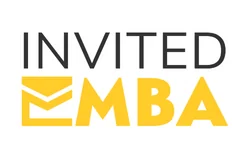
Whether you majored in philosophy or photography, the value of a liberal arts degree has been a subject of debate for years.
Though liberal arts majors are considered non-technical, students who graduate in these interdisciplinary fields possess all of the transferable skills needed to succeed in business. In fact, individuals with non-business degrees offer a diverse skill set that can benefit business organizations across all industries. Liberal arts majors are also extremely qualified candidates for mini and traditional MBAs.
Three reasons liberal arts graduates are qualified for MBA programs and business careers:
- Critical thinking and communication skills are foundational to liberal arts degrees
From English to social sciences, the standard liberal arts curriculum teaches students to think critically about problems, and form and communicate their own evidence-based solutions. Not only does this form of analytical thinking apply to reading and writing, but it also sets individuals up for success in business. Whether consulting for a firm, managing projects, or working with others, critical thinking is an essential skill for successful business people. Liberal arts graduates have extensive experience practicing this in addition to their verbal and written communication skills.
In fact, the New York Times recently published an article claiming liberal arts students know “how to think” and will “surpass their peers,” given the foundational skills they possess over STEM disciplines.
Raylea Rideau is Associate Director of Career Development at Rice University and a career counselor who helps students identify their next steps post-graduation. She believes liberal arts graduates can make critical contributions in business environments.
“Liberal arts students are more than capable of pursuing MBAs and careers in business. Those degrees provide oral and written communication skills and a creative mindset that promotes analytical thinking. Liberal arts graduates are unique and can really bolster a company,” Rideau said.
With a Bachelor of Arts in Writing from the University of Texas at Austin, Rachel Renier recently completed a mini-MBA before considering a traditional two-year program. As Sales and Account manager at Status Labs, Renier didn’t realize how many business skills she already had, and the additional business acumen she gained in her mini-MBA program quickly led to a promotion.
Renier said, “I didn’t think I would ever be a good candidate for a business curriculum, and I didn’t even consider that communicating with clients in an external business role would be something I’m even good at. But now in my current role, I have to regularly communicate with C-suite individuals and teams to both sell and manage projects. My mini-MBA helped me practice the business skills that have led me to succeed in my new role.”
- Collaboration and teamwork are practiced in liberal arts courses and remain one of the most sought-after skills in the workplace
Industry-specific knowledge and technological skills quickly become obsolete, but teamwork and collaboration will always be valued in the workplace. The ability to work well on a team is often practiced through internships – working in a corporate environment and interacting with other professionals is invaluable to success post-graduation, especially in business.
But even before junior or senior year internships, liberal arts students practice collaboration through creative projects, human behavior studies, research assignments, and more, giving them a leg-up in business. Graduates are also accustomed to giving and receiving feedback, another desirable trait for hiring managers.
Lynn Pasquerella, a contributor to the Harvard Business Review, wrote, “80% of employers (agree) that all students need a strong foundation in the liberal arts and sciences. Indeed, in the global knowledge economy, employer demand for graduates with a liberal education is growing.”
Arguably, the demand has increased recently because the awareness of soft and transferable skills has increased; not because liberal arts degrees suddenly teach more applicable business skills. Liberal arts graduates have always been prepared to succeed in business, and companies are finally implementing this realization in their hiring practices.
- Interdisciplinary liberal arts degrees encourage diversity of thought and approach
McKinsey & Company recently dubbed the post-Covid business world an “innovation crisis.” Companies around the world were forced to do business differently during the pandemic and to succeed, they must continue prioritizing diversity of thought and innovation in 2022 and beyond.
Liberal arts graduates bring a diversity of thought to the workplace. Contrary to their STEM peers, creative majors are accustomed to approaching problems from different angles and bringing experimental ideas to life. This translates well in business.
Andrew Tessmer, licensed professional counselor with more than eight years of experience in career development, said, “With the cross-discipline degree plans spanning the social sciences, humanities, natural sciences, creative arts, and often foreign languages, liberal arts graduates thrive in business settings due to the broad exposure to a variety of analytical problem-solving strategies they developed during their studies. Interpersonal communication, writing, collaborative project management, and idea generation are also necessary skills to thrive in an MBA program.”
Whether you studied mathematics or American History, a mini-MBA is a great way to obtain the acumen and financial literacy you need to succeed in business or pursue a full-time business program. To learn more about how you can accelerate your business career with the Invited MBA, click here.
 Katelyn Powell is a social media and content strategist, lifelong learner, and career development enthusiast living in Houston, Texas. She is passionate about equitable access to education and the Oxford comma. When she’s not writing or binge-reading true crime, she enjoys afternoon naps and providing wedding photography to Texas brides.
Katelyn Powell is a social media and content strategist, lifelong learner, and career development enthusiast living in Houston, Texas. She is passionate about equitable access to education and the Oxford comma. When she’s not writing or binge-reading true crime, she enjoys afternoon naps and providing wedding photography to Texas brides.





Questions about this article? Email us or leave a comment below.